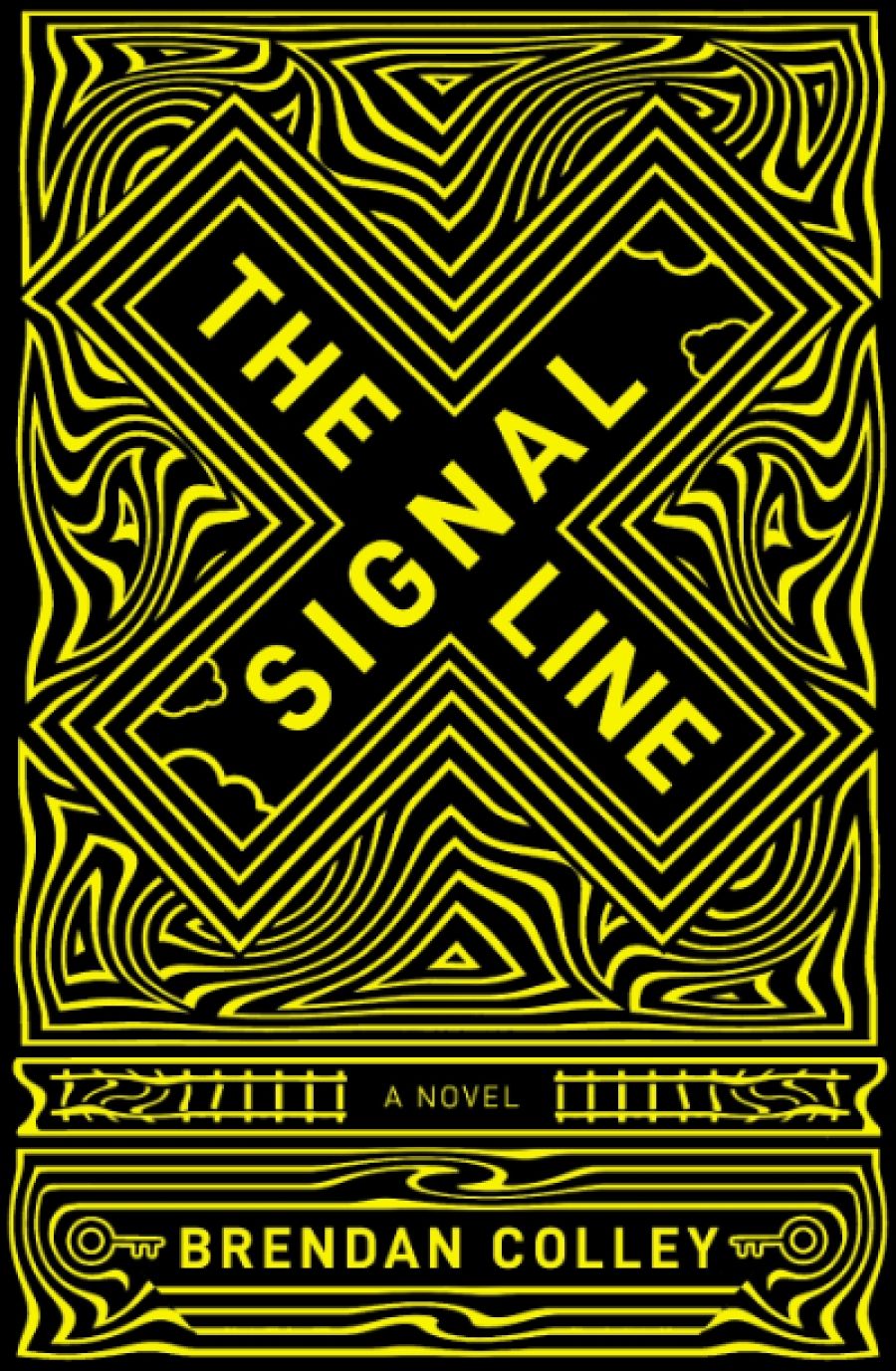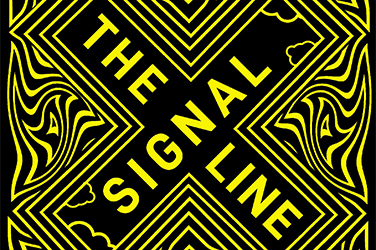
- Free Article: No
- Contents Category: Fiction
- Review Article: Yes
- Article Title: Dreams and ghost trains
- Article Subtitle: Brendan Colley’s big-hearted first novel
- Online Only: No
- Custom Highlight Text:
Winner of the University of Tasmania Prize for best new unpublished work in the 2019 Tasmanian Premier’s Literary Prizes, The Signal Line is Brendan Colley’s first book. As it happens, my review copy arrived just as I launched into Rhett Davis’s Hovering (2022). Although fundamentally different, both novels open with a fraught return to a family home and a resident resentful sibling. Both protagonists have built a new life in Europe, but where Hovering suggests the possible remaking of the old house into some version of home, The Signal Line seeks to relinquish it.
- Article Hero Image (920px wide):

- Article Hero Image Caption: Brendan Colley (photograph supplied)
- Alt Tag (Article Hero Image): Brendan Colley (photograph supplied)
- Featured Image (400px * 250px):

- Alt Tag (Featured Image): Naama Grey-Smith reviews 'The Signal Line' by Brendan Colley
- Book 1 Title: The Signal Line
- Book 1 Biblio: Transit Lounge, $29.99 pb, 298 pp
- Book 1 Readings Link: booktopia.kh4ffx.net/yR6aEb
After the death of his parents, protagonist Geo returns from Rome to Hobart, hoping to sell the house to fund his dream of a classical music career. Geo is a violist, like his beloved late mother. His brother, Wes, a police detective like their father, has also inherited the father’s violent streak. Alienated from his wife, denying his natural gift for music, and living in dysfunction, Wes refuses to move their father’s spent whisky bottles, let alone sell the house: ‘It was an anchor to the heart. Wes was connected to our father’s rubbish as I was to Mum’s viola, and we guarded these memories with our lives.’
Geo and Wes’s already tense dynamic is tested when a ghost train – one that can materialise anywhere tracks once existed – arrives in Tasmania the same night as Geo, carrying confused Italian passengers. In tow is a cast of characters that wouldn’t be out of place on Los Angeles’s Venice Beach Boardwalk – a Swedish ghost-train hunter, a conspiracy bookshop owner, two European hippie backpackers, and a man claiming to be a ‘truth-seeking journalist-slash-watchdog’. They come bearing crystals, Ouija boards, and an insatiable appetite for weed and whisky. Geo welcomes the chaos into his home and his life as a buffer against Wes’s violence, but also as a path to realising what he values.
With elements of multiple genres – including cosy mystery, family drama, paranormal fiction, psychological thriller, and romance – the novel explores themes of freedom, sacrifice, forgiveness, fulfilment, love, and friendship. It also evokes a tension between chasing one’s dream at all costs and sustaining meaningful human connections. In the words of Spanish backpacker Paco, ‘This is life. Life the asshole.’ Sten, an equanimous but lonely ghost-train hunter, compares his forty-year dream of boarding the train to Geo’s dream of winning a place in an orchestra: ‘Music is your signal line ... every time you practise you are chasing something ... any person who is serious about their dream knows when they are on the line, and when they are not.’ For Geo, his girlfriend Alessia in Rome is a balancing force, reminding him that ‘chasing the dream is more important than the dream ... chasing something is what makes a person grow’.
The Signal Line’s strengths are Colley’s taut prose and his humour, which breathe life into his characters. Readers can implicitly recognise the speaker in every piece of dialogue – which supports a running joke about lines that are ‘un-Geo’ or ‘very Sten’. In one of the novel’s funniest scenes, Geo is racked with guilt but tries to hide it: ‘I pointed at the cask wine. “I’ll stick with the red. Help yourself. It’s deliciously fruity.” This was a phrase that didn’t sit on even the outermost ranges of my vocabulary. Completely and utterly un-Geo.’ In another scene, Geo pretends to be a police officer: ‘“On behalf of the Queen, I’d like to thank you for your time and service.” What the fuck?’ These scenes work because the reader knows the claim to un-Geoness is true.
The paranormal is more than expository context for this story; it is the glue for its themes and characters. Geo admires his new friends’ commitment to unconventional modes of being as the mark of ‘true individuals’ in ‘an age where the true individual had departed’. When a paranoid ‘watchdog’ tells Geo, ‘Don’t compare me to those fools [journos]. News organisations are propaganda mouthpieces’ and proceeds to eat his own business card, Geo concludes ‘This man is a hero.’ He celebrates similar attitudes from backpacker Camille and bookshop proprietor Labuschagne.
For this reader, Geo’s romanticising of these characters was often a barrier to a sympathetic reading. Are non-conformist convictions admirable by default, regardless of their content? For example, conspiracy theories of a ‘reptilian élite’ (mentioned once in the novel, in what Geo initially calls the ‘conspiracy bookstore’ but later comes to regard fondly) originate in harmful racist myths, as do some of the real-life conspiracy publications named in the novel. The more unsavoury aspects of such beliefs are not represented. Geo explains, ‘it was my nature to believe in anyone’s dream, just as I hoped everyone would believe in mine’, and the novel is marked with a generosity of spirit. Because it is written with a good heart, and because, after all, this is fiction, to assess The Signal Line’s affectionate portrayal of a range of paranormal and conspiracy beliefs feels ungenerous. Yet to dismiss my responses to this aspect of the work would be a failure, since they dampened my reception of the novel. In the age of misinformation, should novelists develop more scrupulous ways to tell dissident narratives? Author Ned Beauman, critic John Wood, and academic Peter Knight have all contributed to a discussion of this fascinating question.
Whether or not the paranormal is afforded any literal significance, the hunt for a ghost train succeeds as a symbol for a deep-rooted search for personal truth. It is also effective as a narrative device, with a neat plot that is consistently engaging. The Signal Line is complete in its own terms. Readers approaching it with epistemological scruples may come away irritated while readers who seek comfort for the heart will be richly rewarded.


Comments powered by CComment